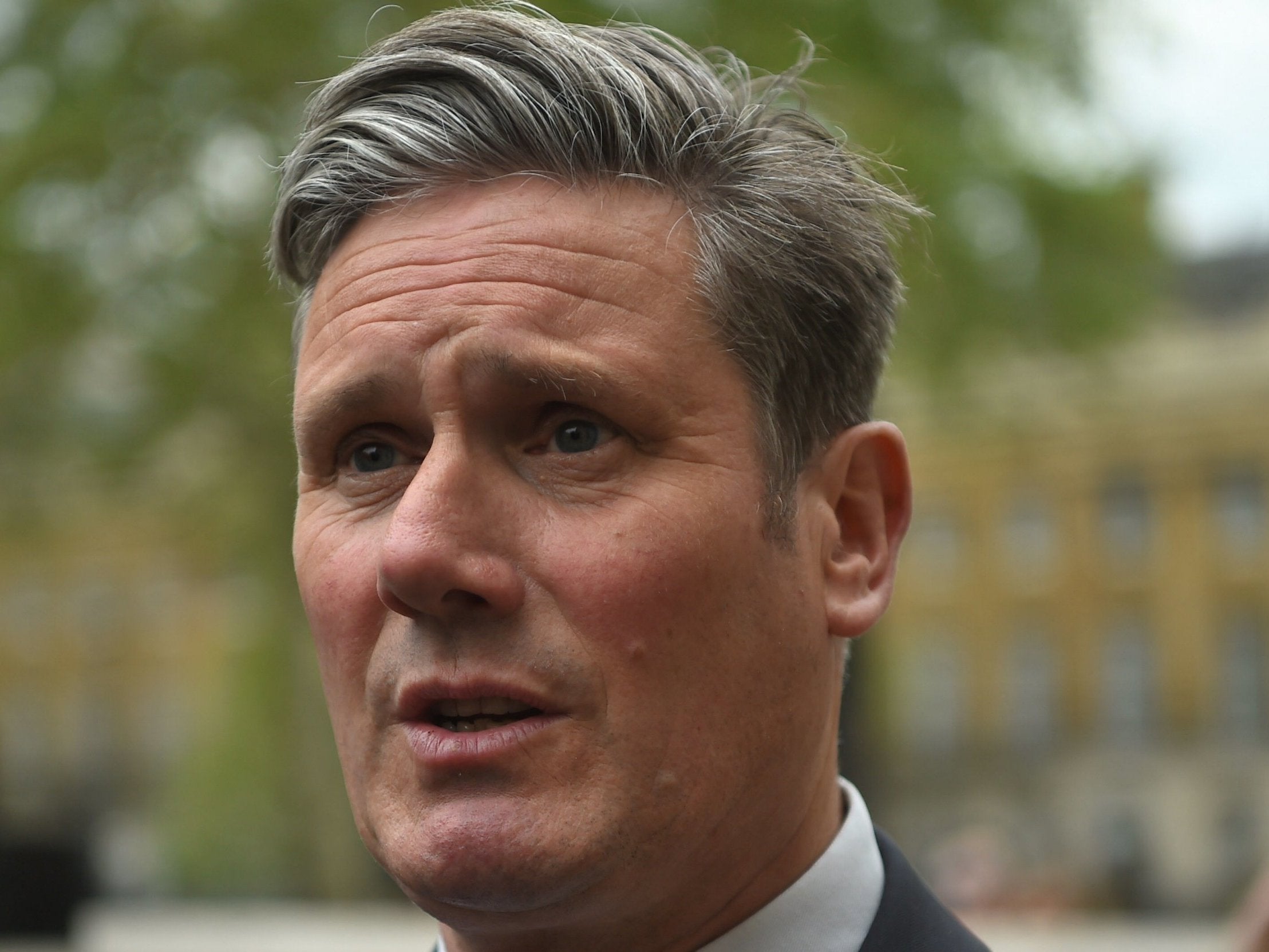Boris Johnson accused of misleading the Queen over motive for suspending parliament
Former attorney general says prime minister must resign if Supreme Court upholds ruling that he acted unlawfully
Boris Johnson has been accused of misleading the Queen about his motive for suspending parliament, after a court ruled that the decision to shut the doors of Westminster on MPs was “unlawful”.
And a former attorney general said that Mr Johnson should resign as prime minister if the finding by Scotland’s highest court is upheld by the Supreme Court in London next week.
Downing Street rejected demands from MPs for the immediate recall of parliament, which was shut down for five weeks in the early hours of Tuesday amid dramatic scenes of defiant MPs waving placards reading “silenced”.
In a devastating ruling, the Court of Session in Edinburgh said it would make an order declaring the prime minister’s advice to the Queen unlawful and the prorogation issued in her name “null and of no effect”.
Downing Street said it was “disappointed” by the judgment, which overturned a previous finding that the decision on prorogation was for politicians and not the courts.
A spokesman said the government will abide by the eventual ruling of the Supreme Court, which will hear its appeal on 17 September along with an appeal against the High Court’s rejection of a separate legal challenge to the prorogation.
In today’s ruling, a panel of three judges – led by the head of the Scottish judiciary Lord Carloway – dismissed Mr Johnson’s claim that the purpose of the shutdown of parliament was to prepare for a Queen’s Speech on 14 October.
Instead, they said it was “motivated by the improper purpose of stymying parliament”.
Lord Carloway said documents provided by the government itself showed that the “true reason” for prorogation was to prevent parliamentary scrutiny of its actions. However, the judges said they would not be releasing the papers in question.
And Lord Brodie described the prorogation as “a tactic to frustrate parliament” and allow the executive to “pursue a policy of a no-deal Brexit without further parliamentary interference”.
Scottish National Party MP Joanna Cherry, who was one of a group of 78 parliamentarians bringing the case, said: “Boris Johnson has been found to have acted unlawfully. Boris Johnson has been found to have misled the Queen.
“We feel completely vindicated. We are confident the Supreme Court will uphold this decision.”
And Scotland’s first minister, Nicola Sturgeon, said: “Parliament must be recalled immediately to allow the essential work of scrutiny to continue.”
The former attorney general, Dominic Grieve, who was stripped of the Tory whip last week after rebelling against Mr Johnson’s efforts to keep the option of no-deal Brexit on the table, told the BBC: “If it were to be the case that the government had misled the Queen about the reasons for suspending parliament, and the motives for it, that would be a very serious matter indeed.
“Indeed, in my view, it would then be the moment for Mr Johnson to resign, and very swiftly.”
And former Liberal Democrat leader and barrister, Sir Menzies Campbell, told BBC Radio 5 Live it was “unequivocal” that the prime minister should resign if he was shown to have acted with impropriety.
“Buckingham Palace will not be liking this one bit,” said Campbell.
“If, as is being contended, there was information which suggested that the true purpose was the frustration of parliament and that was not revealed to the Queen, then she would have the disadvantage of being given inaccurate or even improper advice.
“And since she’s obliged to accept advice from the prime minister, then I think it raises into very, very sharp focus precisely the conduct of the prime minister and his very future in that role.”

The general secretary of the Unite union, Len McCluskey, joked that Mr Johnson should steer clear of Scotland or he would be “liable to face a citizen’s arrest”.
Sir Keir Starmer, the Shadow Brexit secretary, was informed of the ruling after giving a speech to the TUC in Brighton and vowed to “get Boris Johnson back in parliament” to hold him to account over Brexit.
He told delegates: “It was obvious to everybody that not only was shutting down parliament at this crucial time obviously, the wrong thing to do, we should be sitting each and every day to resolve this crisis.”
A government spokesman said: “We are disappointed by today’s decision, and will appeal to the UK Supreme Court. The government needs to bring forward a strong domestic legislative agenda. Proroguing parliament is the legal and necessary way of delivering this.”
It is unclear how the prorogation could be lifted. Downing Street suggested it would involve the Privy Council offering fresh advice to the Queen in a meeting after the Supreme Court ruling, though other Westminster insiders believe the Commons speaker could simply resume sittings if the prorogation is ruled null.
The office of John Bercow said that decisions on the recall of parliament during prorogation were for the executive to take.
Join our commenting forum
Join thought-provoking conversations, follow other Independent readers and see their replies
Comments
Bookmark popover
Removed from bookmarks